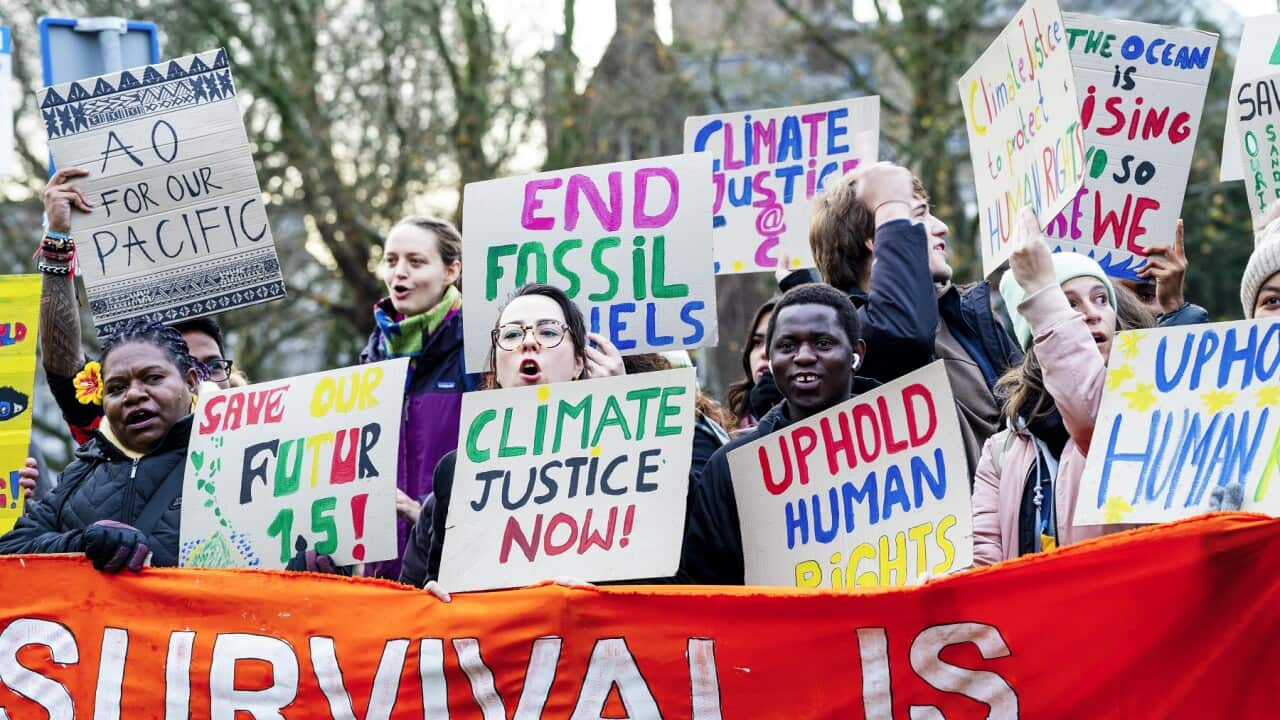TRANSCRIPT
The government plans to halve net migration over the next two years by reducing the number of international students, while attracting more skilled workers.
Central to its planned overhaul of migration is the Skills in Demand Visa.
It will fast-track visa processing times to just seven days for workers applying for jobs with salaries over $135,000.
But the measure, known as the specialist skills path, will exclude tradespeople, machinery operators and labourers.
Instead, they'll be admitted under a different stream for essential workers with slower visa processing times.
Opposition leader Peter Dutton says that's a mistake.
"What sort of government, at the time of a building crisis, when you can't get a tradie (tradesman) and you certainly can't afford one, what sort of government decides to close the door to tradies coming into Australia? It's completely the wrong decision, and it's going to have negative impact on housing affordability, the complete opposite of what the government is promising."
CEO of Master Builders Australia Denita Wawn welcomed the overall strategy, but is also disappointed by this element.
“We're of the view that it was unnecessary, but [we're] willing to work with the government. But it's disappointing as we get to look at more of the detail of the report, coupled with the Minister's response to questions in her press conference yesterday that we would have to prove there is a shortage, I think we've already done that, it's still going to be an uphill battle for us to meet the numbers that we say we need."
The government is aiming to bring net migration - the number of new arrivals versus those leaving - down from 510,000 last year to 250,000 by 2025.
But Opposition Leader Peter Dutton is choosing to focus on overall migration.
"It turns out they are increasing the migration program by 130,000 people. Over 1.6 million people over the next five years. That is going to put huge pressure on housing. "
Greens leader Adam Bandt accuses Mr Dutton of unfairly blaming migrants, and the government of bowing to Coalition pressure.
"Migration hasn't caused Labor's housing crisis. It's Labor backing unlimited rent rises, unlimited interest rate rises, and not building enough public and affordable housing. That's what's got us into the housing crisis that we're in, but now Labor has joined the Liberals in blaming migration for the housing crisis. Stop trying to out-tough Peter Dutton, because there's nothing he won't do."
It's a sentiment echoed by Carlo Carli, from the Federation of Ethnic Communities Council of Australia.
"There's a lot of people that want to scapegoat immigrants and scapegoat our migration policy and that really has to be resisted. The reasons for these reforms is because the previous system was broken, the previous system needed to be tightened up and we believe that the paths highlighted in today's announcement are really positive."
Former Immigration Department Secretary Abul Rizvi says the Coalition contributed to the boom in migration.
"In many ways the boom in net migration was partly the fault of the Coalition. The Coalition government in early 2022 introduced a whole range of measures to put the foot to the floor (accelerate) in immigration and as a result immigration numbers, particularly students and working holidaymakers, boomed very quickly."
Chef Massimo Calosi came to Australia from Italy on a working holiday visa in 2016.
He worked in a cafe where he was underpaid in cash wages and didn't receive superannuation, before moving to a restaurant where he worked overtime without pay.
He says exploitation of workers on temporary visas was rife in the hospitality industry.
While the migration plan aims to address exploitation, primarily through measures making it easier for temporary workers to change employers, Mr Calosi doesn't believe the strategy protects low-paid workers enough.
"Even after the latest announcement from yesterday, [the] Australian migration system is not a system that aims for people to stay here permanently, so this structure creates this permanent limbo of temporary visas. And unfortunately workers on temporary visas are the most vulnerable ones because, more often than not, in fact pretty much always, they are afraid to speak up."
The government is also planning to take tough measures on education providers and international students whose English is not proficient enough, or who are not genuine about their studies.
It's not ruled out capping international student places if net migration continues to grow.
But former Immigration Department Secretary Abul Rizvi says setting student limits would be chaotic and difficult to implement.
"I think we focus too much on the export benefits of overseas students and not enough on the benefits of overseas students who go on to become Australian citizens and work in Australia for the rest of their lives, paying taxes and contributing to the Australian economy. The latter is far, far more important than the export revenue that the universities earn and I think it is time for the Australian government to turn around and make that clear to the Australian people."













